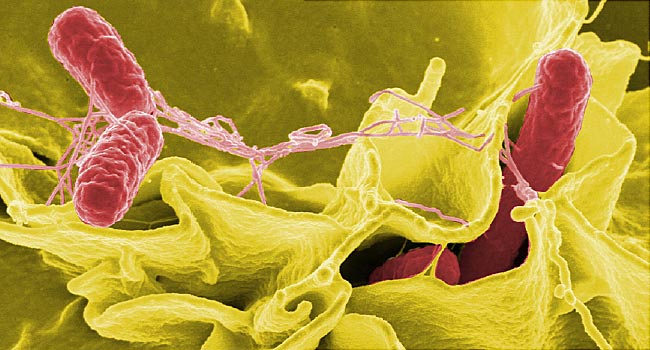
According to a recent report published by the CDC, over 250 people across 32 states fell sick with a strain of Salmonella that’s resistant to multiple antibiotics between June 2018 and March 2019.
At least two people died from the infection, and a further 60 cases were so severe that they required hospitalisation.
The outbreak of antibiotic resistant Salmonella infections was linked back to beef bought in the US and a “Mexican style soft cheese” sourced in Mexico. They found that the strain didn’t respond to treatments involving the drugs ciprofloxacin and hazithromycin, two of the main antibiotic drugs used to treat Salmonella worryingly. Its reported that the drugs had “decreased susceptibility.”

Samlonella bacterium.
To prevent salmonella infection, you must ensure your food is thoroughly cooked.
“To prevent infection, consumers should avoid eating soft cheese that could be made with unpasteurised milk, and when preparing beef they should use a thermometer to ensure appropriate cooking temperatures are reached: 62.8°C (145°F) for steaks and roasts followed by a 3-minute rest time, and 160°F (71.1°C) for ground beef or hamburgers.”
Human activity is primarily the cause of the outbreak. The increasing misuse of antibiotic drugs has allowed certain strains of bacteria to become resistant to medication through the process of evolutionary pressure. Bacteria and viruses can evolve and mutate much faster than humans, so its especially important for researchers to stay on top of developing and updating drugs.
The bacteria has been mostly controlled in humans now, and the outbreak seems to have ceased. Despite this, the same strain seems to be spreading through cattle at a concerning rate. Farmers have been known to pump cattle full of antibiotic drugs even though they aren’t even sick. This misuse is what allows bacteria to get the edge and evolve new resistances.